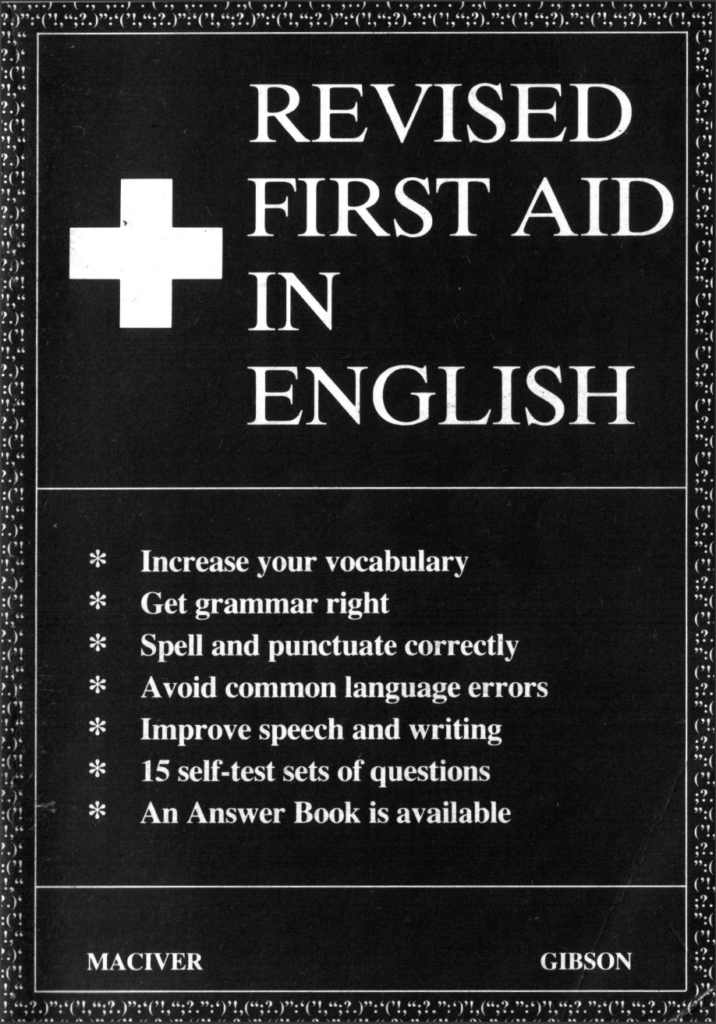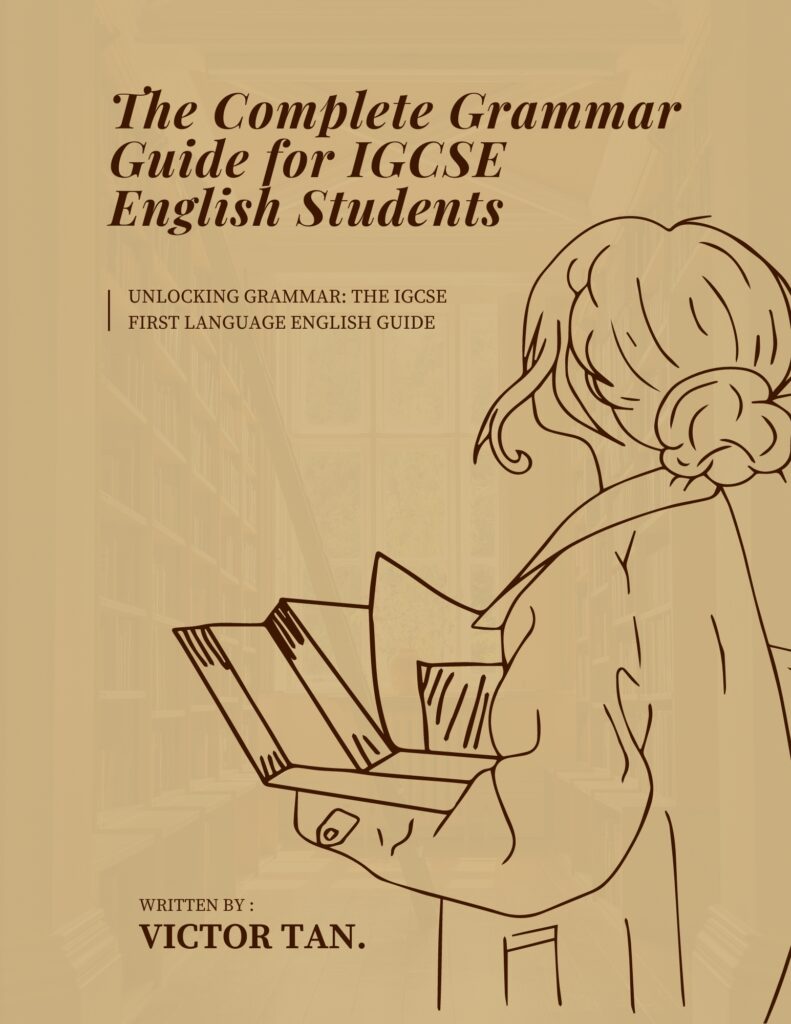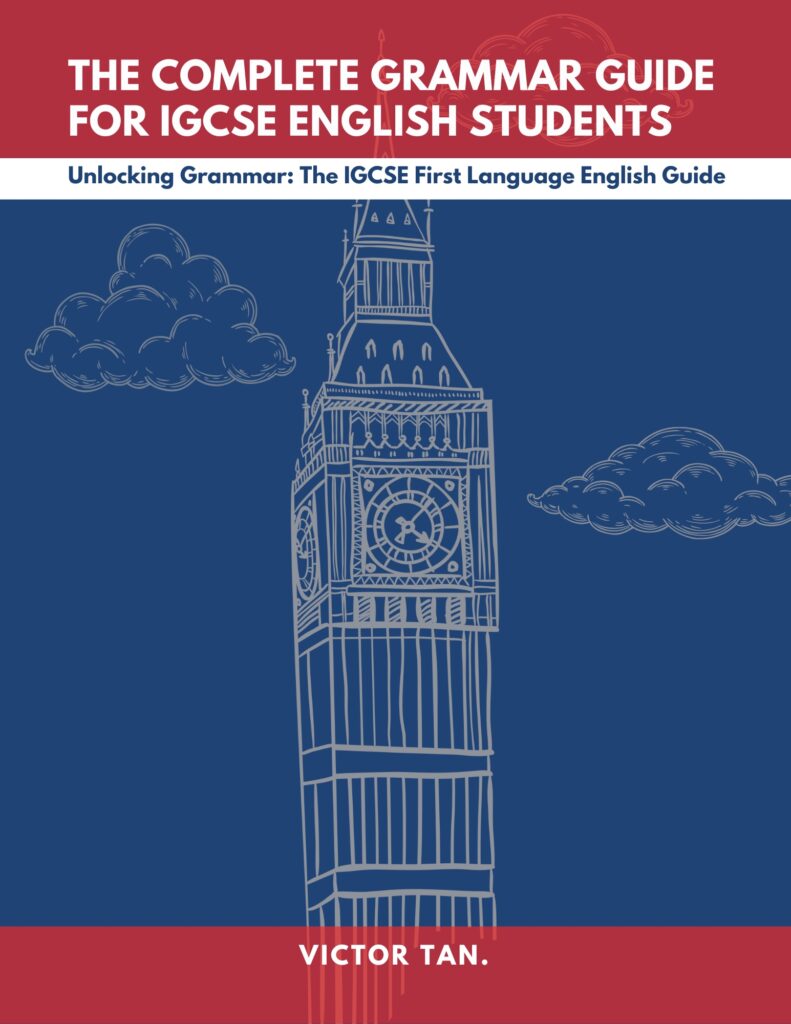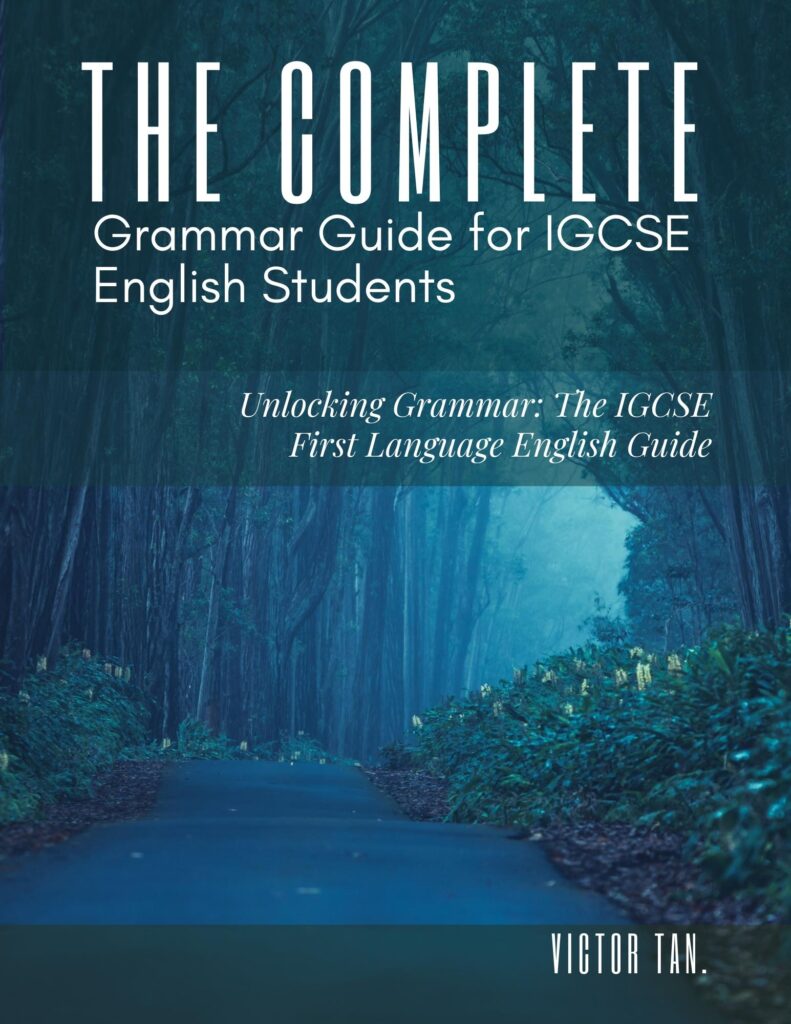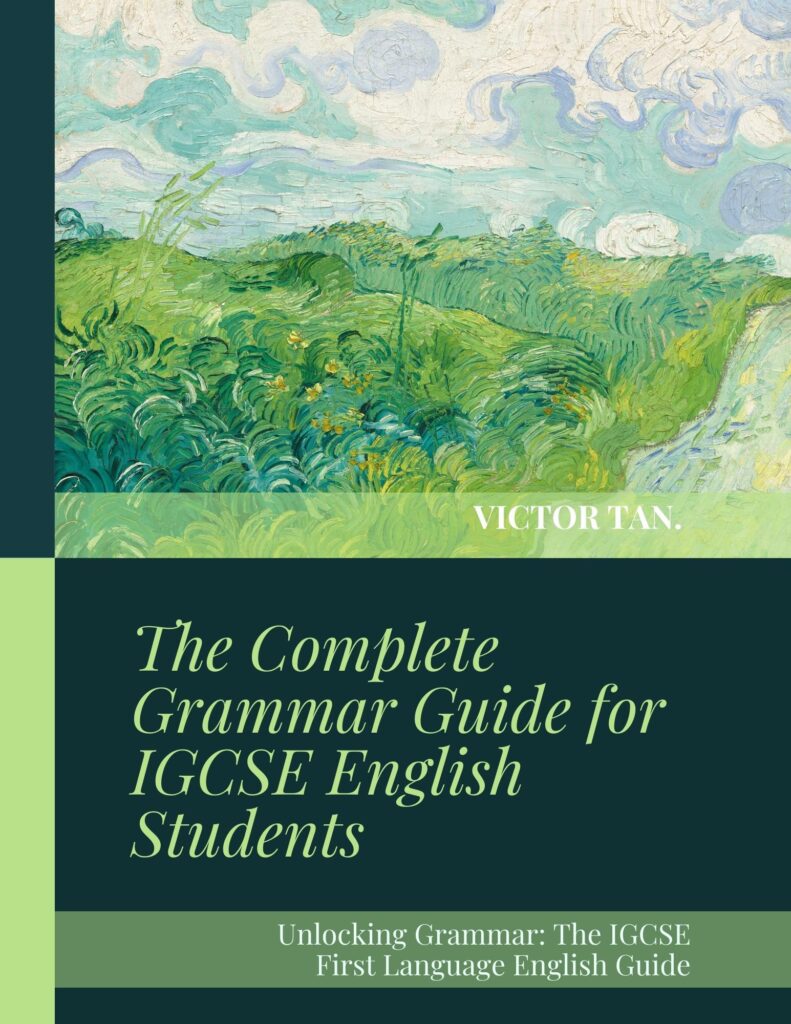I’m very excited to announce to all of you today that I have just released the complete IGCSE grammar guide and it’s available right now on my website!
Before you purchase…
What is this book about?
This is an IGCSE English grammar book.
It’s suitable for both First Language English students as well as English as a Second Language students who are taking the 0500 exam as well as the 0510 exam, and it’s also suitable for students of all ages who are interested in learning about the mechanics of English grammar across all ages.
Have a look at a sample below!
If you’re interested to purchase, click here; to complete your purchase, simply click or tap “Add to cart”, and you should be able to view your cart and check out normally using your credit card; please note that this is an eBook and no physical copy will be distributed to you!
Why this book?
I decided to write this book when I started to notice that my students were facing trouble in writing and constructing sentences, even though they are technically First Language students. This made me realize that there’s a little bit of a gap in what the IGCSE requires in terms of First Language English and English as a Second Language, what students are prepared to demonstrate, and what schools actually do teach along the way; although First Language English is a curriculum that was designed by Cambridge to create a curriculum for First Language English speakers, people take First Language English for a whole variety of reasons; maybe they take the subject because sometimes they just want to get into universities or it’s part of a requirement or maybe their school doesn’t allow them to take anything else…
But the net result is that many students who are taking First Language English and English as a Second Language do not have the requisite grammatical skills to write and communicate well in English.
This is terrible, because grammar is the foundation of almost all good writing; it is essentially the rules of the English language and what First Language is asking for is for the ability to demonstrate that you have certain types of artistry in mind as you create summaries, writer’s effect pieces, and everything in between…
But how can you create a work of artistry when you don’t even know the rules in the first place, let alone how to break them beautifully?
So that’s where this book comes in.
This book is…
- Comprehensive.
It’s essentially a full-scale study guide and reference book that is going to teach you about pretty much everything it is that you need to know about grammar, whether you’re a Year 8 student or Year 11 student. The book’s 230+ pages will teach you everything that you need to know about grammar and more, with a special emphasis on the elements that are required for IGCSE success, in the context of IGCSE English and much more!
- Organized.
It’s organized into multiple different sections that teach you about things like, for example, the parts of speech, multi-sentence pronoun-antecedent agreement, the different types of possible sentence structures, irregular verbs, irregular nouns, verb conjugations, and so on so forth.
Each of these sections is ordered in such a way that it addresses common problems that students face in writing from the very outset and targets those problems from the perspective of a learner. - Practice-focused.
The book contains many different exercises that you can conduct in order to improve your understanding and to test your understanding over the course of time and ultimately at the end of the day come out with the understanding of English grammar that you’ll need to conquer the IGCSE; you’ll get the chance to understand grammatical concepts on an intuitive level.
Ready to dramatically level up your writing and speaking? Purchase the book today!

